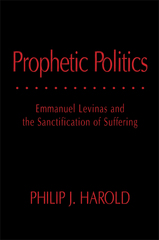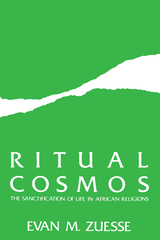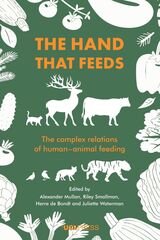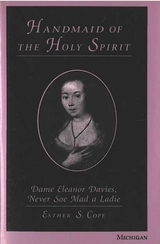
In Prophetic Politics, Philip J. Harold offers an original interpretation of the political dimension of Emmanuel Levinas’s thought. Harold argues that Levinas’s mature position in Otherwise Than Being breaks radically with the dialogical inclinations of his earlier Totality and Infinity and that transformation manifests itself most clearly in the peculiar nature of Levinas’s relationship to politics.
Levinas’s philosophy is concerned not with the ethical per se, in either its applied or its transcendent forms, but with the source of ethics. Once this source is revealed to be an anarchic interruption of our efforts to think the ethical, Levinas’s political claims cannot be read as straightforward ideological positions or principles for political action. They are instead to be understood “prophetically,” a position that Harold finds comparable to the communitarian critique of liberalism offered by such writers as Alasdair MacIntyre and Charles Taylor. In developing this interpretation, which runs counter to formative influences from the phenomenological tradition, Harold traces Levinas’s debt to phenomenological descriptions of such experiences as empathy and playfulness.
Prophetic Politics will highlight the relevance of the phenomenological tradition to contemporary ethical and political thought—a long-standing goal of the series—while also making a significant and original contribution to Levinas scholarship.

African religions, as this study concludes from its close examination of a number of specific African universes, are religions devoted to the sanctification and constant renewal of life. They are dedicated to Becoming rather than to Being, and seek to sustain a flourishing divine order rather than save the isolated self from it. But these religions do not comfortably express themselves in metaphysical abstractions; instead, they use a ritual idiom more effective than any philosophical disquisition.
Ritual Cosmos analyzes the logic and inner meaning of such ritual structures as sacrifice and taboo, harvest festivals and rites of divine kingship, millenary movements, witchcraft, and much else. In the course of the discussion, many of the basic assumptions of the scientists and theologians who have concerned themselves with the role of religion in human society are reexamined; the distinctions often made between the sacred and the secular, or religion and magic, for example, are questioned.
READERS
Browse our collection.
PUBLISHERS
See BiblioVault's publisher services.
STUDENT SERVICES
Files for college accessibility offices.
UChicago Accessibility Resources
home | accessibility | search | about | contact us
BiblioVault ® 2001 - 2025
The University of Chicago Press









